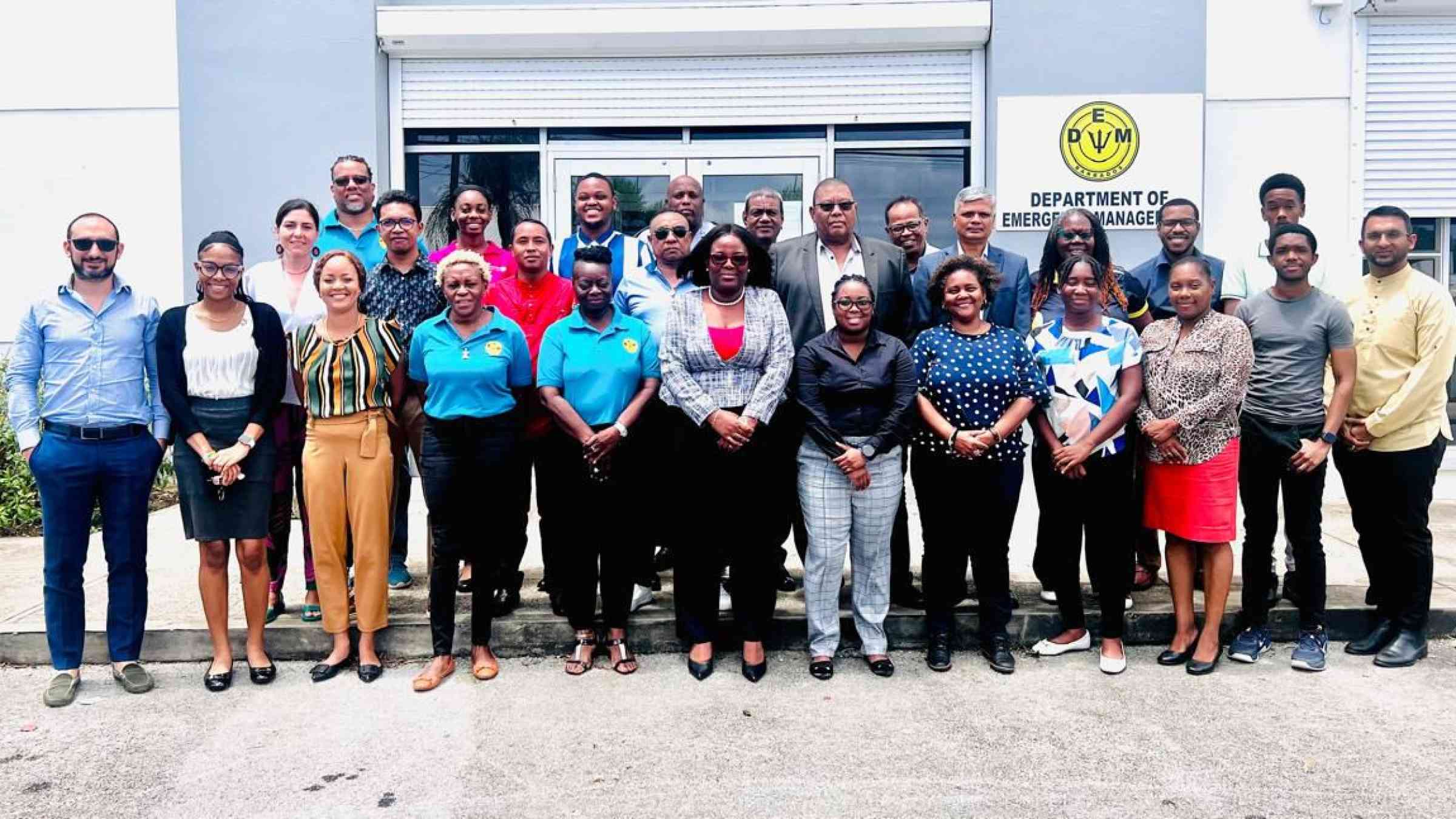Promoting South-South cooperation: Building bridges between the Indian Ocean and the Caribbean

The creation of a collaborative roadmap to enhance disaster preparedness, improve regional institutions, and increase capacity building was one of the key outcomes of the recent visit by a delegation from African Indian Ocean Island States to Barbados. Held from June 3 to 6, 2024, the exchange was organized by UNDRR with support from the Government of Barbados (DEM, CZMU and BMS), CDEMA, and the University of the West Indies. Representatives from Madagascar, Mauritius, Seychelles, and the Indian Ocean Commission participated in this peer-to-peer learning event. The visit fostered significant advancements in disaster preparedness, regional cooperation, and capacity building, marking a pivotal step in enhancing resilience against natural hazards for both regions.
The Caribbean and the Indian Ocean Island States are among the most disaster-prone regions globally, facing hurricanes, cyclones, earthquakes, and tsunamis. Their size, limited resources, and geographical isolation amplify these challenges, which are further intensified by climate change.
The study tour facilitated extensive knowledge exchange. Participants attended presentations on risk assessments, early warning systems, risk communications, and climate adaptation tools. They visited the Barbados Department of Emergency Management, the Disaster Risk Reduction Centre at the University of the West Indies, the Coastal Zone Management Unit, the Civil Aviation and Meteorological Services, and a community-based site in Pile Bay with emergency volunteers.
Dr. Kawol, Senior Chief Executive at the Ministry of Local Government and Disaster Risk Management in Mauritius, expressed his enthusiasm: "We have the golden opportunity to learn from the Caribbean and share our experiences. I aim to apply the insights gained here in my country."
The visit also highlighted regional Caribbean cooperation. The Indian Ocean Commission seeks to develop a regional mechanism to better face threats. Gina Bonne, Head of the Environment and Climate Change Department for the IOC, noted, "This study tour is timely as we establish our regional platform for DRR. We have much to learn from CDEMA and the Caribbean, and our experience can also benefit the Caribbean region."
Andria Grosvenor, Planning and Business Development Manager at CDEMA, emphasized the importance of collaboration: "Knowledge exchange, regional cooperation, and capacity building are essential. No single nation can address these complex challenges alone. By working together, the Caribbean and Indian Ocean regions can build more resilient communities."
The study tour concluded with a collaborative roadmap and a commitment to cooperate on:
- Enhanced disaster preparedness and response capabilities through shared knowledge and best practices.
- Collaboration on establishing regional institutions for DRR, including solidarity mechanisms.
- Improved self-evaluation and monitoring of disaster management strategies using standard methodologies.
- Increased capacity building through cost-effective virtual and in-person training programs and collaboration with universities.
Mr. Luca Trinchieri, Head of the European Union delegation in Barbados, praised the initiative: "This is a perfect example of South-South and triangular cooperation."
This initiative was made possible by generous funding from the European Union under the "Resilience Building and Disaster Response Management in the Indian Ocean" (RDRM-IO) programme. Through this programme, UNDRR is enhancing DRR understanding and governance capacities in Comoros, Madagascar, Mauritius, and Seychelles.